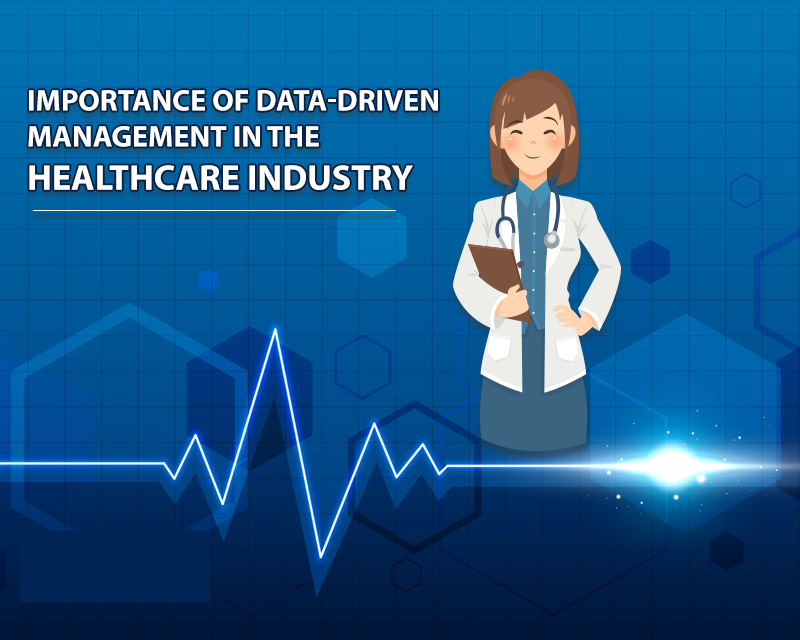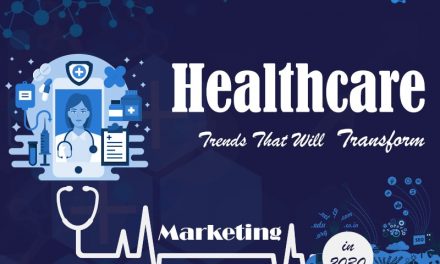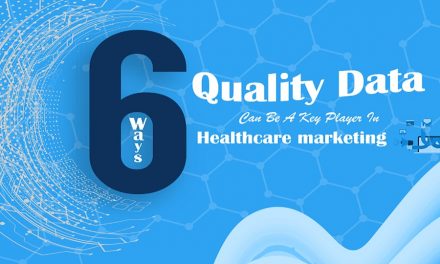The overall growth witnessed by the health industry is just unprecedented. And this growth has been extremely significant over the last few years. With the introduction of more and more advanced technology, it is evident that the medical sector has undergone such tremendous growth.
Though recognized as one of the most flourishing industry in the modern world with trillions of dollars of earnings made every year, all over the world, the healthcare system has become extensively complicated. With the medical sector growing a service-oriented industry and the landscape changing significantly, B2b management marketers suggest the adoption of a data-driven management structure also, because patients are demanding a better and more efficient care management system.
As most of the operations have become digitalized, with a structured data-driven system, it becomes easier to manage everything. From records of patients to new technologies being introduced, a systematic structure as that of data management can be a blessing for the ever-so-growing medical sector. But why data management?
Also Read: 6 Reasons Why Quality Data is Crucial for Healthcare Industry
Simply put, data-driven allows the businesses in the medical sector, including the hospitals, to facilitate changes easily all the while staying flexible and ensuring that the company doesn’t become outdated.
Most big companies in other sectors have adopted data-driven management to get an insight into their operations and be on par with the customers. Since the medical industry deals with patients, it can be of more use than anticipated.
Expert B2b management marketers highlight that using data-driven management can increase the success of all businesses in the industry. The primary motive of the medical sector is to provide value that is based on evidence and outcomes, the adaption of data-driven management can help achieve this feat.
After intensive research conducted by experts in the medical industry, they have touched on a few points that signify the importance of driven management in the healthcare industry.
For your ease, I have summarized these points here.
1. It Becomes Easier to Access and to Analyze Data
Most businesses in the healthcare sector use electronic health records (EHRs). However, the difference between maintaining the records and analyzing them is stark. Due to this ensuing difference, it is difficult for businesses to access and use the data in its potential. There are many irrelevant, and outdated data also included with these lists, which can honestly be overwhelming.

Most businesses have access to EHRs, but these are almost a decade old and have little to no relevance in the modern world. With the practicality of data-driven management, it is possible to bring a structure to the same. Since data management is much about analytics, pursuing it does have certain advantages.
More than 78% of B2b management marketers in the healthcare sector deem data management as a critical priority. To ensure that accessing and analyzing EHRs become more functional, data-driven management is a must.
2. It Helps Build Customer Loyalty for Brands
As the medical industry is undergoing a massive change, service providers in the circuit should focus on building customer loyalty. Providing fast services will ensure that the customers return for more, it is essential that businesses examine their current methods.
For instance, introducing mobile-based apps that allow people to access healthcare information even from their home, keeping a piece of updated information about every step customers are involved with and identifying tools that ensure easiness of securing medical services are some of the great ways to build customer loyalty.
Also Read: Importance of healthcare Data-Driven Management
Using data-driven management makes it easy for medical service providers to introduce all the features as mentioned above. Updating data management allows B2b management marketers to focus on a more customer-centric version of the current marketing tactics. This is what ensures that customers will stay with them for a longer time.
Given that 62% of the industry is adopting engagement technologies further strengthens the fact that data-driven management is significant.3. It Allows Seamless Integration of Work
By retorting to the use of data-driven management, businesses in the healthcare sector can fix the workflow rigidity that exists. By using data-driven management, the companies can detect areas of problem. They can further go through the analytics to come up with constructive solutions.

By hiring employees who can identify the shortcomings in the system and also suggest solutions on how to fix the same, a seamless work environment doesn’t sound like a far-fetched idea. All of this not only allows growth in the personal learning curve, but it also ensures that the businesses grow at the same time.
By adopting data-driven management, businesses in the medical sector ensure to become more cohesive.
To Conclude
The future of data-driven management in the healthcare sector as highlighted by the B2b management marketers is bright. There is no doubt that by integrating the same in the circuit, a lot of changes (and excellent ones) can be achieved. As the importance of driven management in the healthcare industry becomes more prevalent, it is time for businesses in the circuit to start accepting the same.
If you are looking for more tips and information on data-driven management in the healthcare sector, look out for this space. Let’s connect over the comment section!





